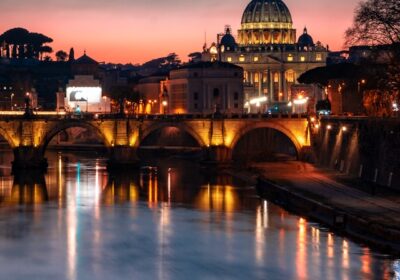Discovering Germany: A Land of History, Culture, and Innovation
Germany is a country that offers a rich tapestry of history, culture, and modern innovation. From the bustling cities of Berlin and Munich to the scenic landscapes of the Black Forest and the Rhine Valley, Germany provides a diverse range of experiences for travelers. This guide will take you through some of the must-visit destinations, cultural highlights, and essential travel tips to help you make the most of your trip to Germany.
Must-Visit Destinations
1. Berlin: The capital city of Germany, Berlin, is a vibrant metropolis known for its history, art, and nightlife. Key attractions include the Brandenburg Gate, the Berlin Wall Memorial, and the Reichstag Building. Explore Museum Island, home to world-class museums, and enjoy the eclectic neighborhoods of Kreuzberg and Prenzlauer Berg.
2. Munich: The capital of Bavaria, Munich, is famous for its beer gardens, historic buildings, and Oktoberfest. Visit Marienplatz, the heart of the city, and admire the Glockenspiel. Don’t miss the Nymphenburg Palace and the BMW Museum. The Englischer Garten is perfect for a leisurely stroll or a picnic.
3. Heidelberg: Known for its romantic charm and historic university, Heidelberg is a picturesque town on the Neckar River. Explore the Heidelberg Castle, the Old Bridge, and the charming Old Town. The Philosophers’ Walk offers stunning views of the city and the river.
4. The Black Forest: This region in southwest Germany is known for its dense forests, charming villages, and cuckoo clocks. Visit Triberg for its waterfalls, Baden-Baden for its thermal baths, and Freiburg for its medieval architecture and vibrant university atmosphere.
5. The Rhine Valley: The Rhine Valley is famous for its castles, vineyards, and scenic beauty. Take a river cruise to admire the picturesque towns of Bacharach, St. Goar, and Rüdesheim. The Lorelei Rock and Marksburg Castle are notable highlights.
6. Hamburg: Germany’s second-largest city, Hamburg, is a major port city with a rich maritime history. Visit the Speicherstadt, a UNESCO World Heritage site, and the modern Elbphilharmonie concert hall. The Reeperbahn is known for its nightlife, and the Miniatur Wunderland is a must-see for model railway enthusiasts.
7. Dresden: Known as the “Florence on the Elbe,” Dresden is renowned for its stunning baroque architecture. Key attractions include the Zwinger Palace, the Frauenkirche, and the Semper Opera House. The city’s museums house impressive collections of art and artifacts.
Cultural Highlights
1. Art and Museums: Germany is home to numerous world-class museums and galleries. In Berlin, visit the Pergamon Museum and the Neues Museum. Munich’s Alte Pinakothek and Frankfurt’s Städel Museum are also notable. Dresden’s Green Vault is a treasure trove of royal artifacts.
2. Historic Landmarks: From the medieval castles of Bavaria to the remnants of the Berlin Wall, Germany is rich in historic landmarks. Neuschwanstein Castle, Linderhof Palace, and Wartburg Castle are must-see sites. The Cologne Cathedral and Aachen Cathedral are stunning examples of Gothic architecture.
3. Festivals and Events: Germany hosts numerous festivals and events throughout the year. Oktoberfest in Munich is the world’s largest beer festival. Other notable events include the Berlin International Film Festival, the Frankfurt Book Fair, and the Nuremberg Christmas Market.
4. Culinary Delights: German cuisine is hearty and diverse. Enjoy traditional dishes like sausages, sauerkraut, and pretzels. Each region has its specialties, such as Swabian Maultaschen, Bavarian Weisswurst, and Rhineland Sauerbraten. Germany is also famous for its beer and wine.
Travel Tips
1. Language: While German is the official language, English is widely understood in tourist areas. Learning a few basic German phrases can enhance your travel experience.
2. Transportation: Germany has an excellent public transportation system, including high-speed trains (ICE), regional trains, and extensive networks of buses and trams. Renting a car is a good option for exploring rural areas and the scenic countryside.
3. Currency: The currency in Germany is the Euro (€). Credit and debit cards are widely accepted, but it’s advisable to carry some cash for small purchases and in rural areas.
4. Weather: Germany has a temperate climate with distinct seasons. The best time to visit depends on your destination and interests. Spring (April to June) and autumn (September to October) are generally pleasant and less crowded.
5. Accommodation: Germany offers a wide range of accommodation options, from luxury hotels and boutique B&Bs to budget hostels and holiday apartments. Booking in advance is recommended, especially during major events and festivals.
Conclusion
Germany is a country that seamlessly blends history with modernity, offering travelers a wealth of experiences to explore and enjoy. Whether you’re delving into the vibrant culture of Berlin, savoring the culinary delights of Bavaria, or cruising along the scenic Rhine, Germany promises a journey filled with unforgettable moments. Embrace the culture, indulge in the cuisine, and discover the history that makes Germany a unique and captivating travel destination.






Leave feedback about this